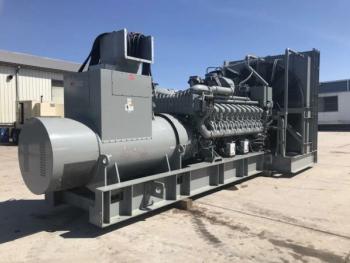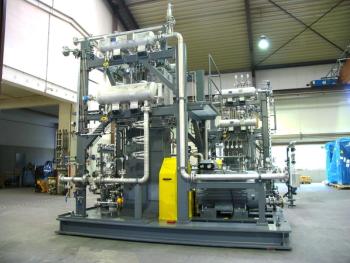
At POWERGEN 2024: Converting Older Power Plants to Meet Net Zero 2050
At POWERGEN 2024, Mark Scherluebbe, managing director at EY-Parthenon Energy, outlined a plan to transform older, less efficient fossil fuel plants into facilities that make use of modern intermittent resources.
Speaker Mark Scherluebbe, managing director at EY-Parthenon Energy, led a technical session on Transforming Older Plants for A Decarbonized Energy Future at PowerGen 2024, offering an in-depth discussion and step-by-step plan regarding the transformation of older, less efficient fossil fuel plants into facilities that make use of modern intermittent resources.
Driving Forces of the Energy Transition
Scherluebbe kicked off the discussion by providing a history of the United States’ primary power generation fuels throughout the centuries, graduating from coal and steam to relatively modern alternatives, such as natural gas, hydrogen, and ammonia. The transition away from coal-fired power is driven by environmental regulations and commitments from the private sector to reach net-zero emissions by 2050.
The forces driving the energy transition were divided into five categories: political, ecology/resources, society, technology/innovation, and economy. These factors work in tandem to ensure that the energy transition takes place over the next few decades as legislation eliminates emissions-heavy industries, technology advances past coal and gas power, and economic feasibility for intermittent resources becomes possible with widespread implementation and production.
“All of these drivers are possible due to the four Ds of the energy transition,” Scherluebbe said. “Most people would agree that decarbonization, decentralization, digitalization, and deglobalization form the factors that push on you. You don’t just have the supply and demand forces pushing on you, but everything comes at once.”
Power providers are tasked with considering these aspects of the energy transition to meet clean energy expectations, but the United States is currently lagging behind European nations in the pursuit of a decarbonized future.
Energy Transition Trends
European countries are leading energy transition efforts through an aggressive application of carbon taxes and carbon-capture incentives. The global leaders of the transition are Nordic countries in the following order: Iceland, Finland, and Norway. Although the United States is behind much of Europe in the decarbonization of industry, the use of coal has decreased from 39% to 19% over the course of eight years, from 2014 to 2022. The current ranking for the country’s transition away from coal has risen despite the hesitant acceptance of alternative, less efficient, and more expensive energies.
Scherluebbe cites a few foreign strategies that may be successful in the domestic energy transition: “What the Scandinavian countries are doing is relying on hydropower, moving away from fossil fuels to biofuels, solar, and wind. The main thing is that they’re much more aggressive in working toward it. The United Kingdom and The Netherlands are also moving away from coal in favor of natural gas and other renewables.”
A majority of transition efforts are attempting to retrofit fossil fuel plants with carbon-capture technology, allowing current generation methods to remain while removing the environmentally negative byproducts. In addition to installing carbon capture at these older plants, integrating renewable fuel mixtures offers a lower carbon output than traditional methods.
Steps to Take
A brief list of energy transition tips was offered at the conclusion of the session, granting listeners the opportunity to follow a generalized step-by-step process that highlights best practices for relying on renewable energy. Scherluebbe broke down this process into three simple brackets—switch from fossil fuels to renewable sources, take full advantage of government credits and grants, and explore technologies to eliminate or capture carbon from old plants.
Newsletter
Power your knowledge with the latest in turbine technology, engineering advances, and energy solutions—subscribe to Turbomachinery International today.





